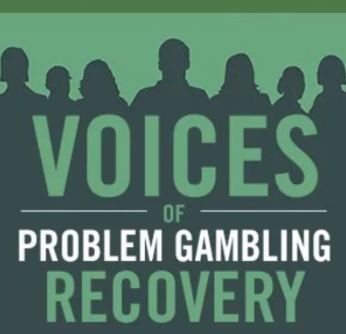
As Seen on Intenta Newsletter
|
.Worth Reading This Month · Link between loot boxes and problem gambling has been “robustly verified” in new research. · Leaked recording captures discussion of Counter-Strike match fixing April Spotlight – Monetization tactics in video gamesThis month, we’re highlighting the tactics used in video gaming and the links to problem gambling. The gaming and gambling industries have converged, borrowing sophisticated techniques from each other to engage and profit from players – now games are increasingly monetized and gambling is more game-like. Loot boxes – virtual items in video games that contain randomized rewards – is one such technique borrowed from the gambling world that has become profitable for the gaming industry. For example, YouTuber Mr Beast recently posted a video of himself opening loot boxes, ranging from $100 to $250,000, with a total value of $500,000. Within two weeks of posting, the video had been viewed over 40 million times. Although the gaming industry claims that loot boxes are unproblematic, non-gambling activities, this claim is refuted by the evidence. Recent research by GambleAware reports that 12 out of 13 studies have established ‘unambiguous’ linking of loot boxes to problematic gambling behavior (Close & Lloyd, 2021). There are a number of other emerging trends in gaming: · Increased access to risky games through mobile adoption and free-to-play models. · Using real money for virtual currency leading to a warped perception of value. · More opportunities to gamble with faster-paced action and random rewards. · More ‘real-life’ loot boxes, virtual skins and character customization. · More data for companies to leverage. Using behavioral analysis, the gaming industry adjusts game mechanisms to increase spending by gamers. Gaming companies also use AI to predict, identify and hunt down ‘whales’ – individual gamers who will spend thousands of dollars on a single platform (Handrahan, 2019). However, gamers are taking notice of the monetization tactics within games. A survey of 1100 gamers in the UK found players reported over 35 different types of ‘predatory’ techniques perceived by gamers to be misleading, aggressive or unfair. The practices were often seen by gamers to be pressuring them to spend money. (Petrovskaya, Elena & Zendle, David, 2021). Research indicates that harms from gambling-like mechanics in games disproportionately affect adolescents and young people. Given the concern “that gambling is now part of everyday life for children and young people” through video games (BBC News, 2021), understanding these predatory tactics will increase our effectiveness at safeguarding the psychological and financial well-being of gamers. Clinicians need to be equipped to deal with problematic gaming behavior. Get started today by registering for our Gaming Disorder Clinical Training. References BBC. Loot boxes linked to problem gambling in new research. 02 April 2021. https://www.bbc.com/news/technology-56614281 Close, James and Joanne Lloyd. (2021). Lifting the Lid on Loot-Boxes Chance-Based Purchases in Video Games and the Convergence of Gaming and Gambling. Report Commissioned by Gamble Aware. https://www.begambleaware.org/sites/default/files/2021-03/Gaming_and_Gambling_Report_Final.pdf Handrahan, M. (21st October 2019). Yodo1’s AI-driven whale hunt is a bad look for the games industry: Opinion. Retrieved from https://www.gamesindustry.biz/articles/2019-10-21-yodo1s-ai-driven-whale-hunt-is-a-bad-look-for-the-games-industry-opinion Petrovskaya, Elena & Zendle, David. (2021). Predatory monetisation? A categorisation of unfair, misleading, and aggressive monetisation techniques in digital games from the perspective of players. https://psyarxiv.com/cdwhq |




